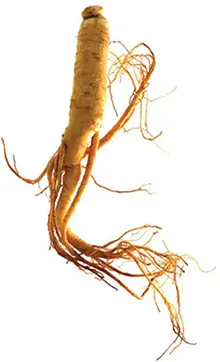
Exploring the Roots
Ginseng, from the genus Panax, is known for its characteristic forked roots and small greenish flowers. The most notable varieties are Asian (Panax ginseng) and American (Panax quinquefolius), with Siberian ginseng (Eleutherococcus senticosus) also playing a significant role. The name ‘ginseng’ derives from the Mandarin word ‘renshen,’ symbolizing the root’s human-like form.
Historical Significance
A staple in traditional Chinese medicine for over 5,000 years, ginseng was a prized possession of Chinese emperors. In North America, Native American tribes like the Cherokee and Iroquois utilized ginseng for various health benefits and life enhancement.
Healing Powers
Ginseng is celebrated as a panacea, notably for its adaptogenic qualities that help the body manage stress and balance blood sugar levels. It is often used to boost libido and treat impotence. However, its interaction with heart medications like blood thinners advises caution.
Magical Attributes
As a potent love herb, ginseng stirs passion, particularly when consumed as tea. Burning ginseng as incense dispels negativity and breaks hexes. Carrying ginseng attracts love and wealth, and as an amulet, it symbolizes good fortune, prosperity, and fertility.
Personal and Spiritual Growth
Ginseng is a catalyst for enhancing mental and physical energy, aiding in stress reduction and mental acuity. It supports meditation, offering clarity and tranquility, making it a valuable tool for personal and spiritual development.
